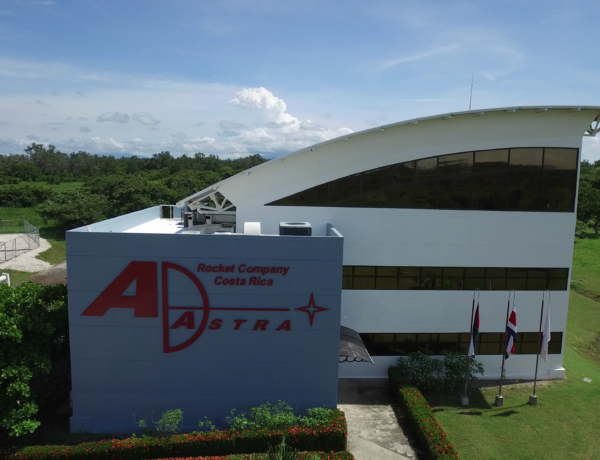
HOUSTON—Ad Astra Rocket Co., Costa Rica SRL, and Mesoamerica, a Latin American asset manager, are forming a joint venture, ProNova Energy, to develop green hydrogen energy strategies for a global customer base and Latin American prospects.
Ad Astra Rocket Co., Costa Rica SRL, is a subsidiary of Ad Astra Rocket Co. It is located in the Houston suburb of Webster and was established in 2005 by Franklin Chang Diaz, a retired NASA astronaut and plasma physicist, to develop plasma rocket propulsion systems.
“In the last decade, green hydrogen has become a leading component of global decarbonization as nations develop plans to address climate change. The technology has also matured, and costs have come down as deployment scales up,” Ad Astra noted in a March 30 announcement of the joint venture.
A green hydrogen commodity is produced by decomposing water into hydrogen and oxygen using hydroelectric, wind and solar renewable energy sources. Electrolysis is carbon free. Green hydrogen is part of a leading strategy for decarbonization on a global scale to address climate change, the announcement said.
Ad Astra, which established a Costa Rican subsidiary in 2010, initiated the first integrated green hydrogen transportation ecosystem in Latin America seven years later. Brazil, Chile, Colombia, Uruguay and Panama as well as Costa Rica have initiated government programs to deploy the technology, the company said.
“This exciting strategic partnership of our two complementing entities will allow us to take green hydrogen to a new level of large-scale deployment,’’ Chang Díaz predicted.
“Green hydrogen will be one of the key energy sources for a decarbonized economy,” added Luis Javier Castro, Mesoamerica’s president and managing director.
Green hydrogen is storable for use later as a liquid, a high-pressure gas or a carbon-free chemical such as ammonia. When burned, it can produce intense heat for industrial applications or electrochemically processed in a fuel cell to generate electricity and pure water as a byproduct.
The latter method powers fuel-cell electric vehicles, increasing their range beyond that of batteries. Green hydrogen is especially suited for heavy-duty transport applications using buses, trucks, trains, ships, aircraft, and stationary power applications.





